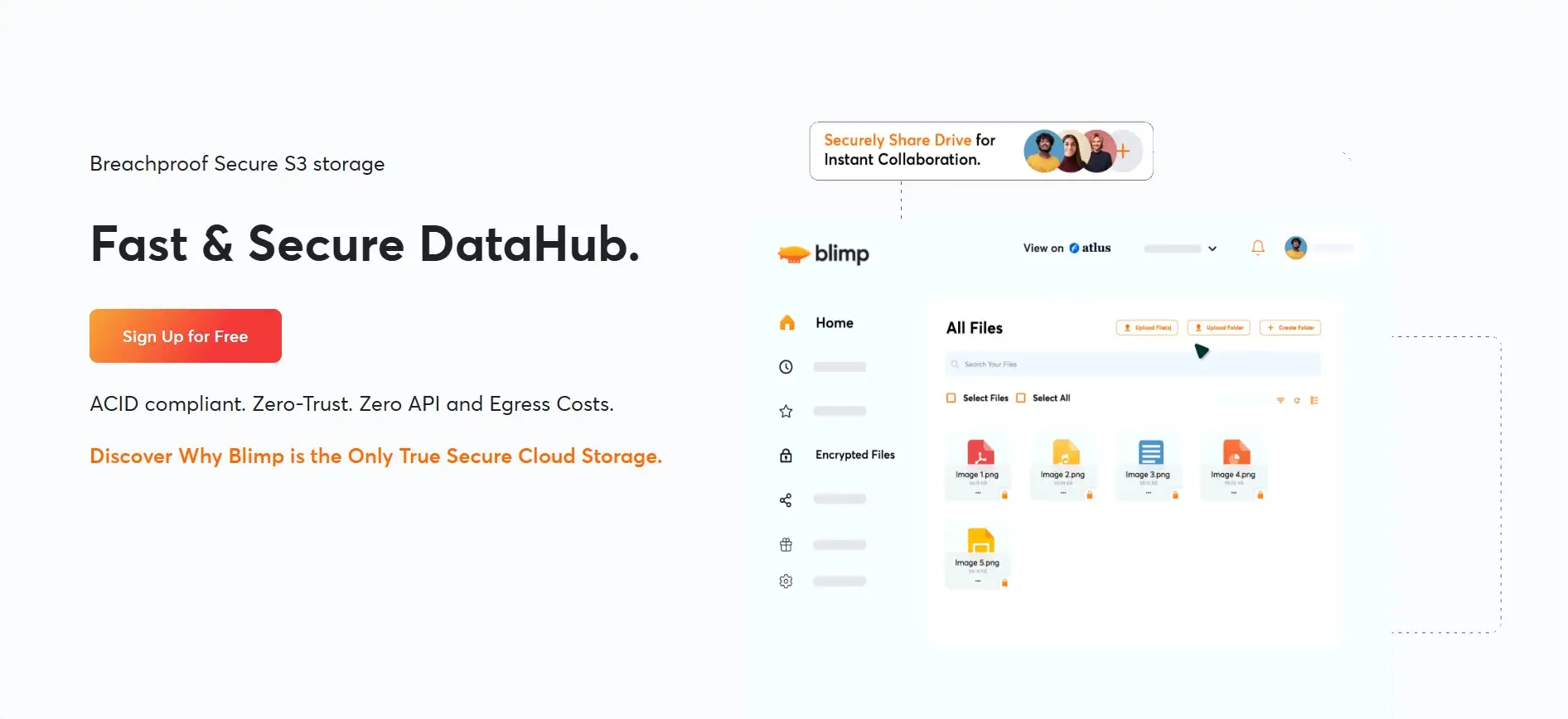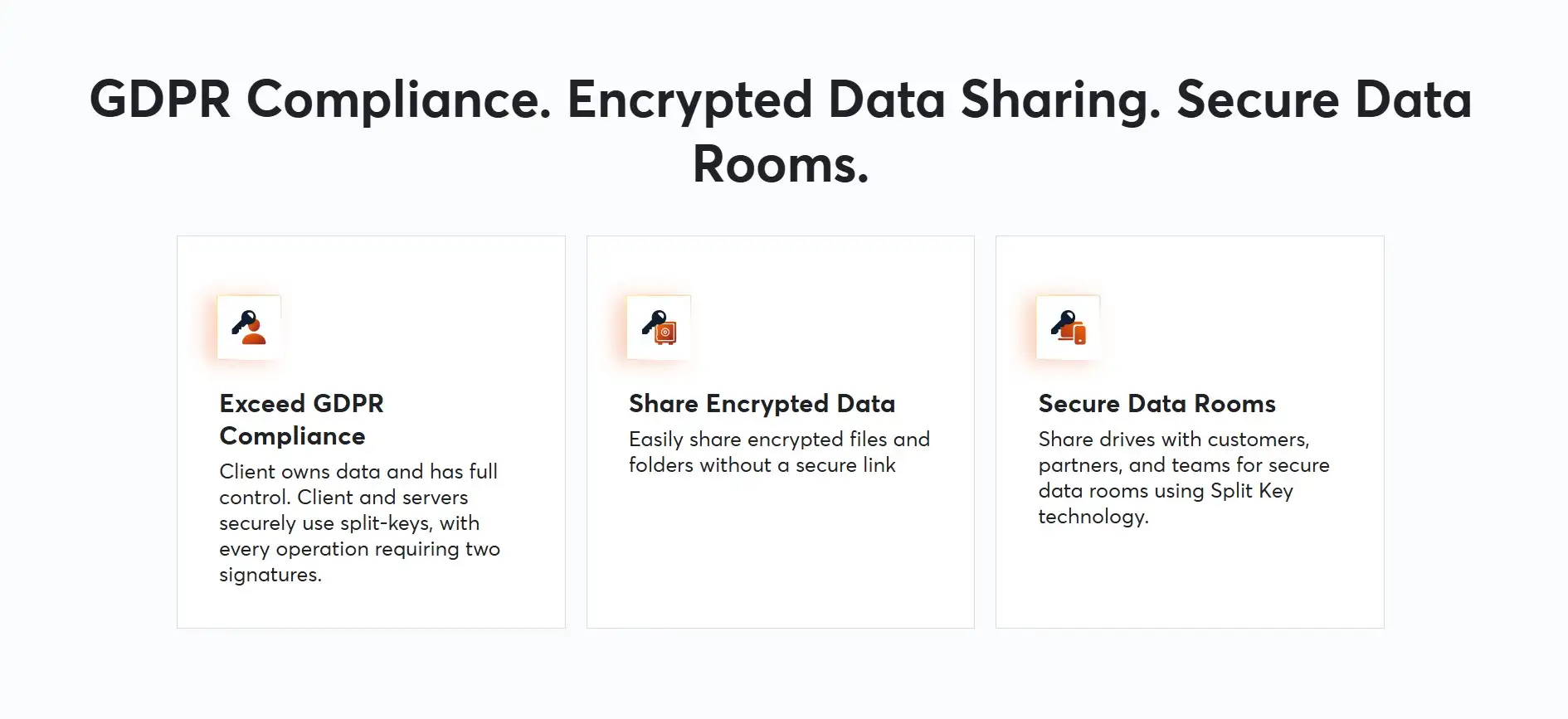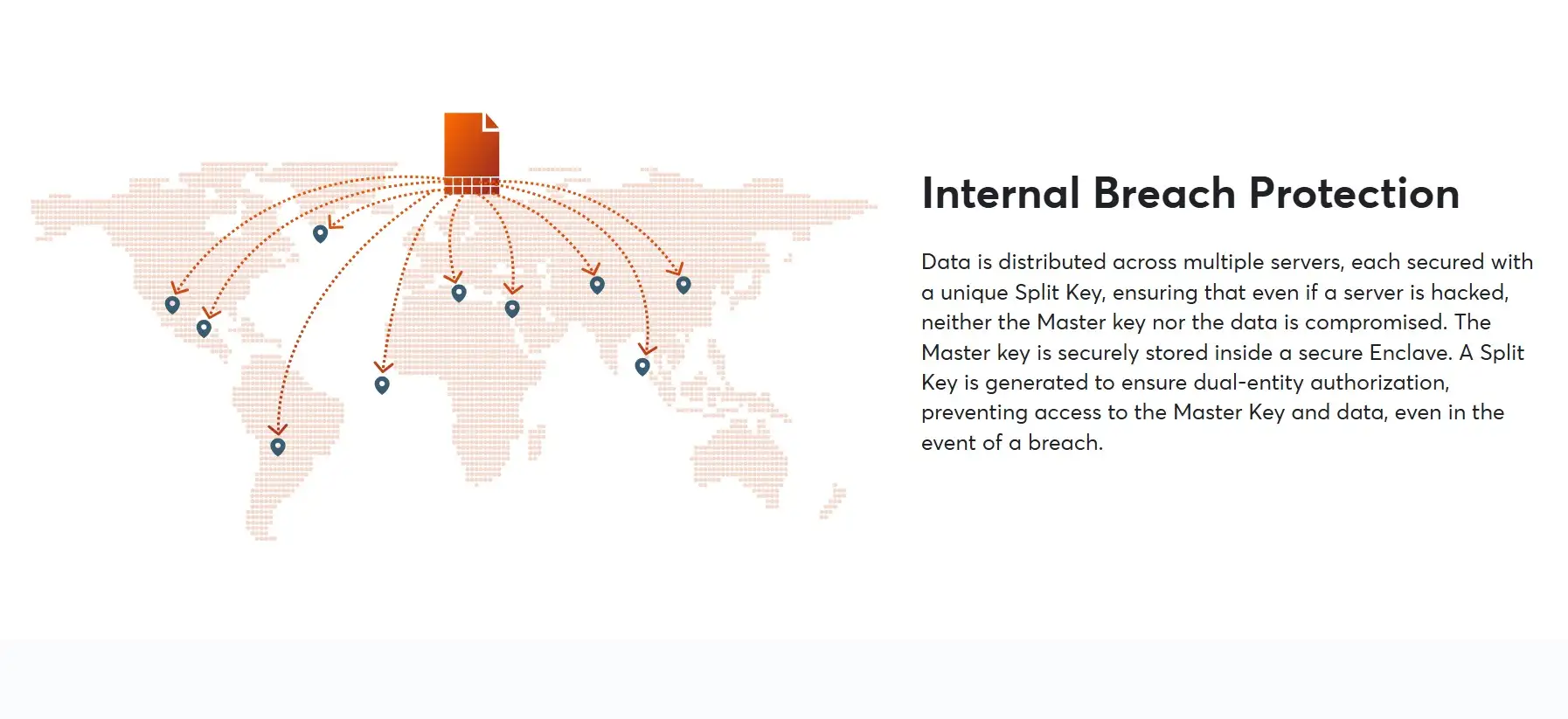About Blimp
Blimp is a high-performance, breachproof, decentralized cloud storage solution designed for modern enterprises, developers, and AI infrastructure. Built on the Züs Network, it offers S3-compatible storage with ACID compliance, making it a powerful replacement for traditional cloud services like AWS and MinIO. With a focus on security, transparency, and performance, Blimp provides next-gen tools to protect, share, and manage your data.
Through innovative features like split-key encryption, proxy re-encryption, and immutable allocations, Blimp redefines the standards for data ownership and access. It offers near 100% uptime, 1TBps transfer speeds, and unlimited scalability—while maintaining full user control over infrastructure, providers, and permissions.
Blimp is part of the Züs suite of decentralized apps, optimized for large-scale, secure, and high-throughput data workloads. Designed from the ground up for enterprise-grade reliability, Blimp combines a zero-trust architecture, blockchain-anchored metadata, and erasure-coded data storage. By eliminating common vulnerabilities of cloud platforms—like internal breaches, vendor lock-in, and egress costs—Blimp provides a radically secure, scalable alternative.
The platform offers unmatched configurability. Users can determine how their data is stored by adjusting data/parity shard ratios, choosing providers based on geography or cost, and applying permissions to create secure data rooms. Blimp’s immutable allocation feature prevents unauthorized deletions or changes to files, ensuring data tamper-resistance. The freeze option locks all storage operations to preserve data in legal or audit-sensitive contexts.
From a performance standpoint, Blimp achieves sub-100ms S3 operation speeds and supports 40TB individual file uploads. It can handle over 1 billion files with advanced routing, sharding, and real-time monitoring. Built-in disaster recovery tools offer zero RTO/RPO configurations, giving enterprises confidence in storage continuity.
In contrast to competitors like AWS S3, MinIO, and Wasabi, Blimp has no egress or API fees, supports proxy re-encryption natively, and is 100% user-owned. Traditional cloud platforms may offer ease of use, but they compromise on internal breach protection, flexibility, and transparent cost models.
Blimp is ideal for AI/ML data training, compliance-driven applications, secure backups, active archives, and decentralized applications (dApps) requiring auditable data lifecycles. Its ecosystem is already integrated with enterprise-grade tools and provides open APIs and SDKs to facilitate adoption.
Blimp provides numerous benefits and features that make it a standout project in the decentralized storage and enterprise cloud infrastructure sectors:
- Split-Key Encryption: Data is protected using unique split keys, preventing internal and external breaches even if one server is compromised.
- Zero Trust Architecture: All actions require mutual cryptographic signatures from both client and server, with records anchored on-chain.
- Proxy Re-Encryption: Enables secure file sharing without needing private keys or secure channels.
- Immutable Allocations: Ensures unalterable storage for regulatory, legal, or mission-critical datasets.
- Sub-100ms Performance: Easily handles billions of files with high-speed object retrieval and transfer.
- No Hidden Costs: Zero API, bandwidth, or egress fees—ideal for scaling enterprise workloads.
- Fully Configurable Storage: Customize data parity, provider permissions, and redundancy ratios for cost-performance optimization.
- Secure Data Rooms: Create private, auditable, encrypted sharing environments for teams and partners.
Getting started with Blimp is straightforward, whether you're a developer, enterprise, or individual user:
- Create an Account: Go to blimp.software and connect a Web3 wallet to activate your identity. No traditional login required.
- Select Storage Tier: Choose from Hot+, Hot−, or custom storage allocations based on your needs. Free and paid plans are available.
- Start Uploading: Use the drag-and-drop dashboard or connect via zs3server to upload and manage data using S3-compatible APIs.
- Manage Storage: View, share, freeze, or lock data. Configure providers, set parity shards, and monitor allocation health in real time.
- Share Securely: Use the built-in proxy re-encryption system to share files without exposing private keys or needing encrypted links.
- Deploy for Enterprise: Use the allocation tools to manage terabyte-scale workloads, set up disaster recovery, and enforce compliance-ready configurations.
- Join the Community: Visit the Discord for live support or explore the documentation for developer tutorials and API integration.
Blimp's core mission is to make secure, high-performance backups effortless for enterprises. By combining zero-trust architecture, client-side encryption, blockchain-based audit logs, and distributed storage, Blimp eliminates manual disaster recovery workflows, prevents data breaches, and ensures sub-second failover—so your teams never miss a beat.
One-Click Marketplace Launch
- Blimp on AWS and Azure/GCP: Deploy in seconds via marketplace listings for major cloud providers.
- Wallet-driven, automated cluster provisioning: Instantly spin up decentralized storage clusters with wallet-based authentication and automation.
- Deep integrations: Enhanced compatibility with popular tools like Rclone, Restic, and Veeam to simplify backup and recovery workflows.
Blimp is part of the broader Züs ecosystem, co-founded by two distinguished professionals: Saswata Basu and Tom Austin.
Saswata Basu serves as the CEO of Züs. With over 20 years of experience in industries such as Blockchain, AI, IoT, and Cloud technologies, Saswata has a proven track record working with renowned companies like Intel, Nortel, Aviat, and Energous. He holds both a Master’s and a Ph.D. from UCLA. His leadership is pivotal in shaping the vision and execution of Züs and its ecosystem apps, including Blimp.
Tom Austin, the CTO of Züs, is a highly respected Security and Language expert. He earned his Ph.D. in Computer Science from UC Santa Cruz and has previously worked at organizations such as Mozilla and CloudFlare. Tom’s expertise in cryptology and virology also plays a significant role in ensuring the security and efficiency of Züs’ decentralized cloud platform.
In terms of investors, Züs has garnered support from notable venture capital firms, including Block Ventures, Chronos Ventures, and Yasar Corporation, positioning the platform for future growth and innovation.
For more insights into the team and the investors behind Blimp, you can visit the official Züs website.
Blimp Token
Blimp Reviews by Real Users
Blimp FAQ
Blimp uses a unique proxy re-encryption system that allows users to share encrypted files without needing to transmit secret keys or use password-protected links. When you share a file, a proxy key is generated using your private key and the recipient’s public key. This proxy key is distributed to storage providers (called blobbers), who then re-encrypt the file in such a way that only the recipient can decrypt it using their private key. This makes sharing encrypted data both secure and convenient, even in public environments. Learn more at Blimp.
Blimp implements a true zero-trust network by enforcing split-key encryption and recording every data contract on the blockchain. Unlike traditional systems that assume internal access is trusted, Blimp ensures that neither clients nor servers can independently decrypt or tamper with data. Even internal breaches cannot compromise the master key, which is split and stored in multiple locations with dual authorization. This architecture completely removes the concept of “trusted zones” and enforces cryptographic separation across the board. Explore more at Blimp.
Yes, Blimp offers full control over data redundancy, availability, and performance. Users can configure the number of data and parity shards for each allocation, allowing them to optimize for either speed or resilience. You can also choose specific blobbers based on region, trust score, or cost, and even replace or add new providers dynamically. For regulatory compliance, immutable and permissioned allocations can be used. Data ownership stays entirely with the user. Visit Blimp for setup details.
Blimp enables tamper-proof AI dataset storage through a combination of immutable allocations, split-key encryption, and blockchain-based access tracking. Once data is uploaded, it can be made immutable, preventing any changes or deletions. The split key architecture ensures no single entity can manipulate the data, and all operations are logged on-chain, ensuring traceability and verifiability. This makes it ideal for use cases where data integrity is critical, such as AI training pipelines and MCP workflows. Learn more at Blimp.
Blimp uses erasure coding to split and store your data across multiple blobbers. Only a subset of these chunks is needed to reconstruct your file, so even if some blobbers go offline, your data remains fully available. The system also includes an auto-repair mechanism that detects missing or corrupted chunks and automatically restores them to maintain 100% availability. This guarantees high reliability even under partial network failure. Discover the full system at Blimp.
You Might Also Like












